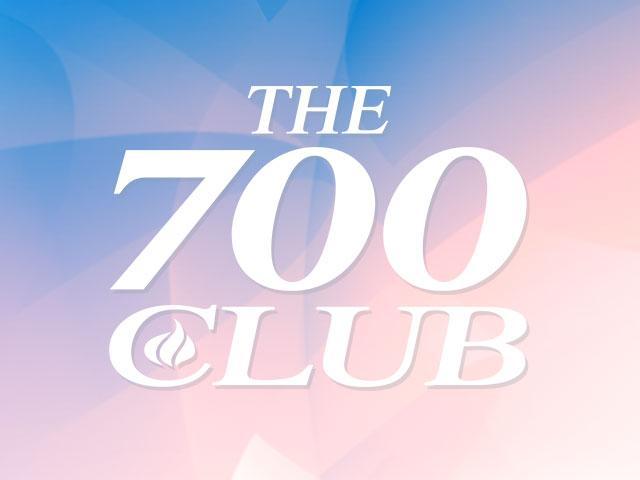An Easter Morning Emergency
CBN.com -On April 4, 2010, Paramedic Michael Ray was dispatched to Grace Point Gospel Fellowship in New City, New York, for a 57 year old male, having trouble breathing.
Michael Ray explained, “We were making our way to the hospital and every couple of minutes I’d ask, ‘Are you all right? Are you okay?’ And I remember one last time asking ‘You all right?’ He gave me this glassy eyed look. I said, ‘You okay?’ And that’s when everything took its spiral in another direction.”
This would be a call Paramedic Michael Ray would never forget. Ed Ilarraza, a man in his late 50’s, had gone into cardiac arrest.
“CPR had been started,” states Ray. “we started to shock him and shock him. CPR continued. More medications and we would shock him again.”
At Good Samaritan Hospital in Suffern, New York, emergency room staff took over advanced life support. Cardiologist Cary Hirsch was called in. He learned Ed had been in cardiac arrest for over 30 minutes. “When you go for more than four minutes without adequate oxygen, blood flow to the brain then there can be brain damage,” reports Dr. Hirsch.
Paramedic Ray decided to stay and help. His 15 years of experience told him it didn’t look good. He says “Unless the supernatural occurs, this is not going to be a favorable outcome.”
Emergency room nurse, Alicia Minaya, had come to the same conclusion. When she told another nurse that Ed wasn’t going to make it, Alicia was taken aback by her response.
Alicia explains, “She told me, ‘You can’t say that.’ I said, ‘Why are you telling me that? It doesn’t look good. I’m being honest.’”
The nurse told Alicia to go back into the room and tell them, ‘Don’t stop working.’ She also told her to pray. “So the only thing I could do was put my hope and faith in God,” said Alicia. “I held his hand and I began to pray out loud in the middle of the code.”
Paramedic Ray was there when she started praying. “At that point if something was going to happen that I’ve never seen before in my career, this is when it’s going to happen.”
Meanwhile, Ed’s family and friends had gathered in the waiting room and were praying. The updates from the ER all pointed to the inevitable – that Ed wouldn’t make it. Ed’s wife Blanca and their son JP were the first to arrive. “At one time the doctor came out and said, ‘We’ve tried everything possible. I’m so sorry.’” recalls Blanca. “I felt numbed. I couldn’t believe this was taking place.”
Then came the words everyone was waiting to hear. Nurse Alicia Minaya remembers, “The doctor screamed, ‘He has a pulse! He has a pulse!’”
The whirlwind of emotion was hard on the family. Ed’s son, JP explains. “It was like one second you’re imagining we’ve got to get ready for a funeral and the next second the doctor comes out and says, ‘He’s a fighter! He’s a fighter!’”
Ed’s fight wasn’t over. Immediately, he was taken to the cardiac unit where Dr. Hirsch and team worked to open Ed’s right artery which was blocked. Time was running out.
Dr. Hirsch said, “An extraordinary number of times Ed was defibrillated; both in the ambulance and when he arrived in the emergency room and when he in fact got into the catheterization laboratory. That did not stop until we got the artery back open.”
Blanca says she continued to trust God for the outcome. “I had this peace that the Lord was going to perform this miracle.”
In addition to the heart attack, Ed suffered a stroke. His brain had been deprived of oxygen for so long; doctors expected the damage to be extensive, and most likely irreversible. The family could only wait and pray. Three days later, Ed opened his eyes, his wife Blanca by his side. “I said, ‘Honey do you recognize me?’” Ed adds, “I was pretty surprised that she would ask me that, because of course! She was my wife!”
Ed couldn’t grasp what had happened over the past three days. “I must have asked my family about 100 times, ‘What happened?’ Because even to me it sounded unbelievable.”
Until a camera crew from a local station came into his room and requested an interview. “The word was around town was that a miracle had happened at Good Sam Hospital and that miracle was me,” said Ed.
It was hailed as the Easter Miracle, and for months local news stations covered Ed’s recovery. But Ed had a long way to go. He explains, “The heart attack was obviously an event but the stroke was an even bigger event.”
First, Ed had to learn to walk again, and do simple things like brush his teeth. He also realized he had to make major lifestyle changes. He quit his two-pack-a-day cigarette habit and started eating right and exercising. He worked so hard that the staff at the rehab center took notice.
“The therapist use to yell out at me, ‘What is it with you? Do you want to run a marathon or something?” said Ed. “And I finally said to them, ‘Yes, that’s exactly what I want to do.’”
And that’s exactly what he did. Six months later, Ed ran his first half marathon, 13.1 miles. He says he never could have done it on his own. “To finish a half marathon I knew that was the Lord, and I wanted to trumpet that. I wanted to herald that all over. ‘Look the Lord has healed me. He’s not only healed me He’s made me better. He has really given me a new life. I am now really reborn!’”
Ed says, “A year later I ran the New York City Marathon, which is 26.2 miles, and I’ll tell you the truth, it’s the point 2 that gets you.”
“The change in his lifestyle certainly is gratifying.” reports Dr. Cary Hirsch. “The fact that he is running a marathon is amazing. But I must say more so is the cognitive function which obviously, no one could tell Ed had been through any procedure like this or been through any event like this. I think that’s more remarkable. There are a lot of people who have their heart muscle function return pretty much to normal, but not everybody makes a neurological recovery as well as he did.”
“Dr. Hirsch has a favorite word and his favorite word is ‘remarkable,’” quips Ed. “And every time we sit together I hear him say to me, ‘Wow, this is remarkable.’ I really believe he means ‘miraculous.’”




